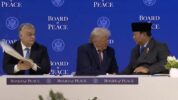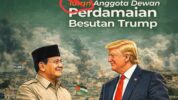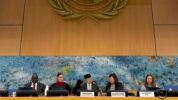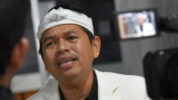CSIS Report: Economic Priorities Under Jokowi Shape Indonesia’s Foreign Policy
JAKARTA, RAKYAT NEWS– A recent report by the Center for Strategic and International Studies (CSIS) has shed light on the dominant economic orientation of Indonesia’s foreign policy under President Joko Widodo. According to Andrew Mantong, a leading researcher at CSIS, Jokowi’s administration has heavily prioritized economic agendas throughout its two terms, shaping the country’s international interactions primarily around economic interests.
Mantong acknowledged the economic successes achieved during Jokowi’s tenure but warned that this singular focus may expose Indonesia to greater risks as global geopolitical rivalries intensify.
“While economic gains are notable, an overemphasis on economic priorities could leave Indonesia more vulnerable amidst rising geopolitical tensions,” he stated.
The report also underscores the need for a more balanced approach that integrates strategic defense considerations. Mantong argues that a robust foreign policy should be underpinned by strong military capabilities to safeguard national interests effectively.
The current approach, he contends, lacks the strategic depth needed to enhance Indonesia’s security position on the global stage.
Furthermore, Mantong criticized the limited impact of Indonesia’s ASEAN chairmanship in 2023, noting that the role did not result in significant normative changes or advancements.
Despite notable achievements such as successful G20 presidency outcomes, there remains room for improvement in addressing regional crises, particularly the ongoing situation in Myanmar.
Mantong advocates for a comprehensive overhaul of Indonesia’s foreign policy strategy. He emphasizes that future policies should not only focus on economic gains but also actively address international security and geopolitical challenges. This strategic shift is essential as global dynamics become increasingly complex and competitive. (Uki Ruknuddin).


























Tinggalkan Balasan